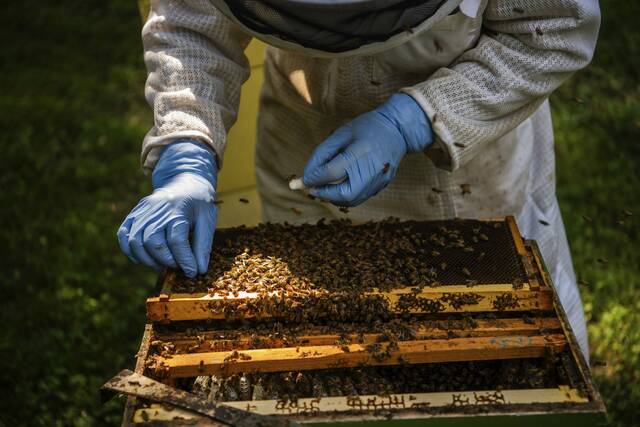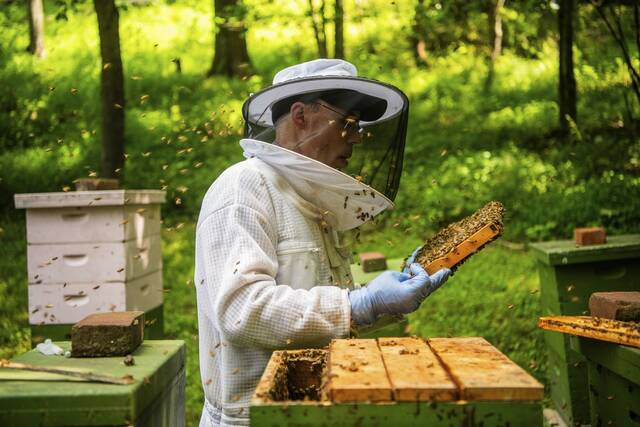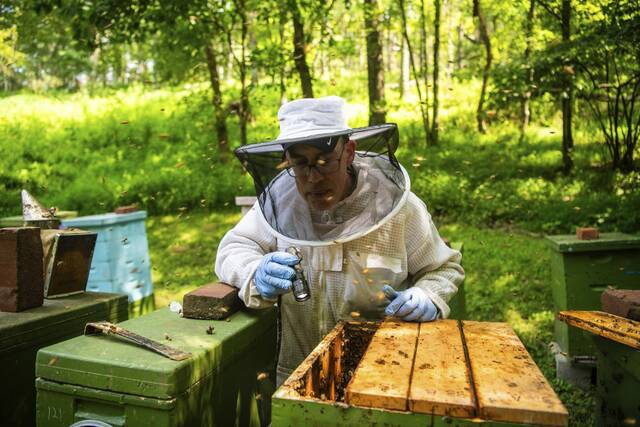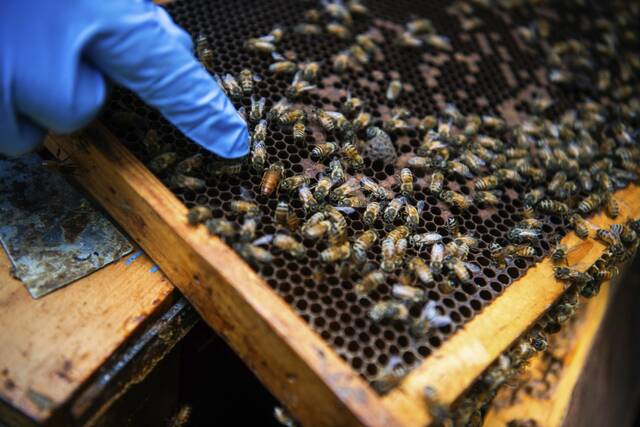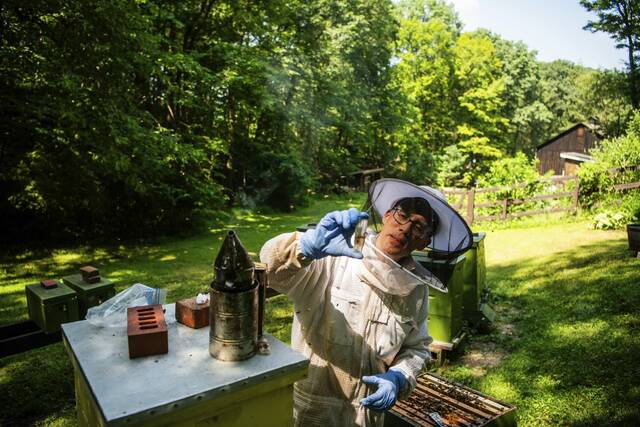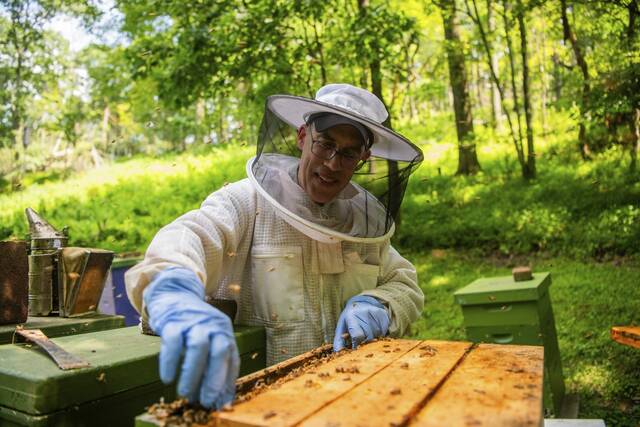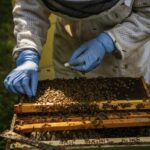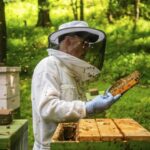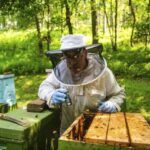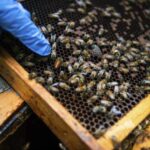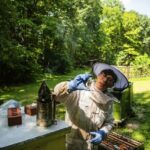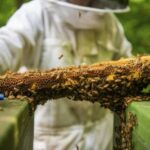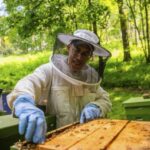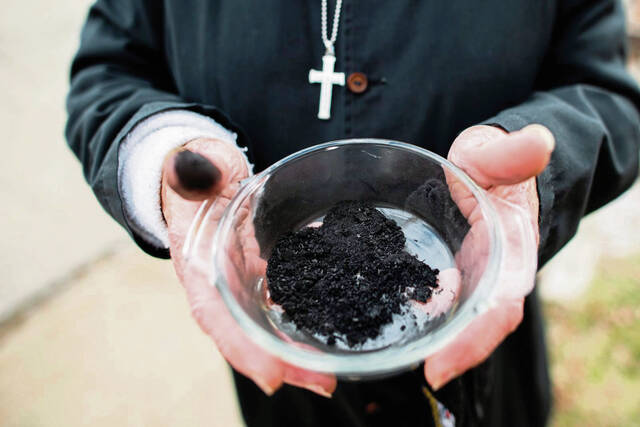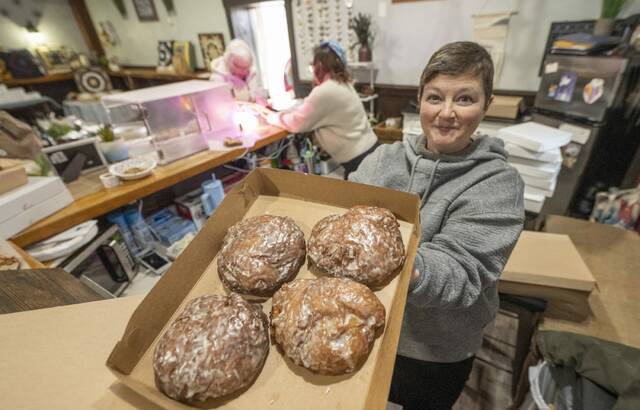Honeybee colonies in the United States are projected to decline by up to 70% this year, entomologists say.
And that could spell economic disaster.
According to the American Beekeeping Federation, honeybees contribute about $20 billion to the value of crop production in the country.
But master beekeeper Joe Zgurzynski of O’Hara is working to combat those numbers.
Zgurzynski, 56, owner of Country Barn Farm, is developing bio-acoustic technology that will help quickly locate queen bees to protect and preserve hives, all through a mobile app.
The technology mimics naturally occurring queen bee piping sounds and attracts the queen to a predictable location within the hive. The app is expected to reduce labor costs, enhance monitoring and increase productivity, he said.
“Beekeepers struggle to locate queen bees in a process that is labor-intensive, time-consuming and disruptive to colony health,” Zgurzynski said.
“The inability to efficiently locate and assess the condition of a queen bee contributes to hive losses and negatively impacts honey production and pollination-dependent agriculture.”
Zgurzynski’s startup, Obeewan Technologies, was awarded a $305,000 grant from the National Science Foundation to help develop the technology. Money comes through the small-business innovation research program.
Erwin Gianchandani, National Science Foundation assistant director for technology, innovation and partnerships, said the goal is to accelerate the translation of emerging technologies into transformative new products and services.
“We take great pride in funding deep-technology startups and small businesses that will shape science and engineering results into meaningful solutions for today and tomorrow,” Gianchandani said.
The precision beekeeping tool is expected to strengthen sustainable agriculture and rural economies, all while protecting bees and creating a healthy future, Zgurzynski said.
The technology has potential applications in livestock management and pest control as well, he said.
A second-generation beekeeper, Zgurzynski grew up in New Jersey and learned beekeeping from his father. As a teen, he became president of his local 4-H beekeeping club.
Zgurzynski graduated from the Tepper School of Business at Carnegie Mellon University before settling into his O’Hara farm, where he mentors new beekeepers, teaches workshops and, for two decades, has provided honey to local businesses like Giant Eagle.
Honeybees pollinate flowers, fruits and legumes — visiting about 2 million flowers to make one pound of honey. Bees are responsible for pollinating nearly one-third of the food crops in the U.S., according to The Bee Conservancy.
Without bees, there would be no almonds, according to the nonprofit’s website. There would also be a 90% loss of apples, onions, blueberries, cucumbers and carrots.
Zgurzynski’s new app will protect the vibrancy of hives and stave off potential losses, he said.
“When there are 40,000 bees in a hive, finding just one — the queen — is time consuming,” he said. “You can spend 30 minutes looking for her and then you risk disrupting the hive.”
The queen bee is the heart of the hive, laying up to 2,000 eggs a day.
“If you lose a queen, the population declines and productivity is thrown off,” he said. “This new technology will tell us with speed and reliability whether there is a queen and how to locate and attract her.”
Once found, she can be protected and genetics of a particular hive can be preserved by incorporating a new queen into it, he said.
Congressman Chris Deluzio, D-Fox Chapel, helped secure the grant.
The money will help boost bees’ economic, agricultural and ecological benefit amid the drastically declining population, Deluzio said.
“I talk a lot about how our government should support the common good,” he said. “Part of that is putting a little initial public investment behind good ideas that have potential to take off in the private sector, create jobs and make life better for all of us. I’m glad to see federal support come to Western PA for this innovative project.”
Once a small business is awarded a Phase I foundation grant, it is eligible to apply for Phase II funding and additional supplements totaling up to $2 million.
The National Science Foundation’s small-business program awards more than $200 million a year to help develop products and services with commercial and community impact.
Zgurzynski said, given the essential role of honeybees in pollination, improving hive management could have significant economic and ecological impact.
His app technology hasn’t been previously commercialized and represents a novel method of influencing honey bee behavior for practical hive management, he said.
“We’ve come together to bring science, sustainability and technology to the heart of apiculture,” Zgurzynski said.


